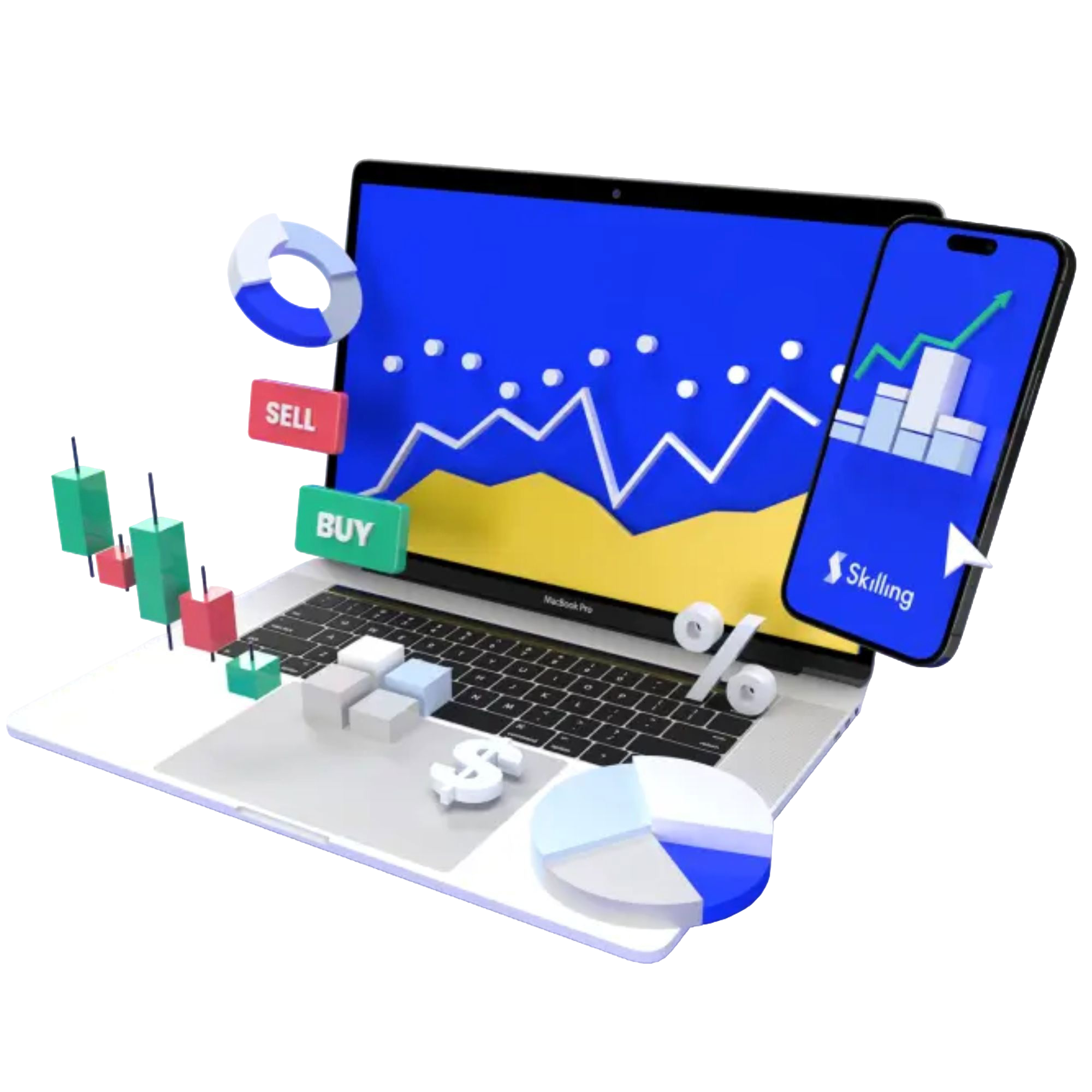Shareholders play a vital role in the corporate world, influencing company decisions and benefiting from its success. Understanding who shareholders are, their roles, and the different types they come in can help you grasp their importance in the business ecosystem. This article will provide a comprehensive look at shareholders, their responsibilities, and how they differ from stakeholders.
Shareholder meaning
A shareholder, also known as a stockholder, is an individual, company, or institution that owns at least one share of a company's stock. Shareholders are essentially partial owners of the company and have certain rights and privileges, including the ability to vote on corporate matters, receive dividends, and benefit from the company’s growth through capital gains. Shareholders invest in companies with the expectation of earning returns on their investments.
Practice with a Demo Account
Try our demo account and experience real market conditions.

Roles of a shareholder
Shareholders have several important roles and responsibilities within a company:
- Voting rights: Shareholders have the right to vote on major corporate decisions, such as electing the board of directors, approving mergers and acquisitions, and making changes to the corporate charter.
- Dividend entitlement: Shareholders may receive dividends, which are a portion of the company’s profits distributed to shareholders. The amount and frequency of dividends are determined by the company’s board of directors.
- Ownership and control: By owning shares, shareholders have a claim on a portion of the company’s assets and earnings. They can influence company policies and decisions through their voting power.
- Profit sharing: Shareholders benefit from the company’s success through increases in the stock price and dividend payments. Capital gains from the sale of shares can also provide significant returns.
- Monitoring management: Shareholders monitor the performance of the company’s management and can hold them accountable through voting and other governance mechanisms.
Types of shareholders
Shareholders can be categorized into two main types:
1. Common shareholders:
- Rights and privileges: Common shareholders have voting rights and can participate in decisions affecting the company. They are also entitled to dividends, though these are not guaranteed and are paid after preferred shareholders.
- Risk and reward: Common shareholders face higher risk as they are the last to receive assets in the event of liquidation but they have the potential for higher returns through capital gains and dividends.
2. Preferred shareholders:
- Rights and privileges: Preferred shareholders typically do not have voting rights, but they have a higher claim on assets and earnings than common shareholders. They receive fixed dividends before any dividends are paid to common shareholders.
- Risk and reward: Preferred shareholders have a lower risk compared to common shareholders because they receive dividends first and have a higher claim on assets in case of liquidation. However, their returns are generally lower and more stable.
Shareholder vs. stakeholder: Difference?
While shareholders and stakeholders both have interests in a company, their roles and perspectives differ significantly. Here’s a comparison:
| Feature | Shareholder | Stakeholder |
|---|---|---|
| Ownership | Owns shares in the company. | May not own shares but has an interest in the company. |
| Primary concern | Financial returns and stock performance. | Broader concerns including financial, social, and environmental impacts. |
| Voting rights | Typically has voting rights on major decisions. | Generally does not have voting rights. |
| Risk and reward | Directly affected by stock price and dividends. | Affected by the company’s overall performance. |
| Examples | Individual investors institutional investors. | Employees, customers, suppliers, community members. |
Summary
Shareholders are crucial components of any company, providing capital and holding management accountable through their voting rights and influence. Understanding the roles and types of shareholders can help you better appreciate their impact on corporate governance and performance. Differentiating between shareholders and stakeholders also highlights the broader spectrum of interests that companies must balance to achieve sustainable success.
Capitalise on volatility in share markets
Take a position on moving share prices. Never miss an opportunity.

FAQs
1. What is a shareholder?
A shareholder is an individual, company, or institution that owns shares in a company, giving them partial ownership and certain rights such as voting and dividend entitlements.
2. What are the roles of a shareholder?
Shareholders have roles including voting on major corporate decisions, receiving dividends, benefiting from company profits, and monitoring management performance.
3. What are the types of shareholders?
There are two main types of shareholders: common shareholders, who have voting rights and potential for higher returns, and preferred shareholders, who have priority on dividends and assets but usually do not have voting rights.
4. How do shareholders differ from stakeholders?
Shareholders own shares and are primarily concerned with financial returns, while stakeholders have a broader interest in the company’s overall performance and impact, including employees, customers, and the community.
5. How can shareholders influence a company?
Shareholders influence a company by voting on major decisions, electing the board of directors, and holding management accountable for the company’s performance.
Understanding the roles and significance of shareholders offers valuable insights into corporate dynamics and the diverse ways in which shareholders contribute to a company’s success. For further exploration into investing and trading, including global shares such as Apple and cryptocurrencies such as Ethereum consider delving into CFD to uncover additional strategies and opportunities. Please note that past performance is not indicative of future results.











